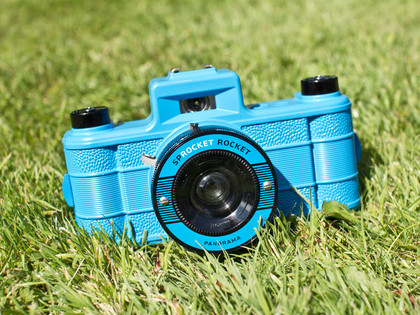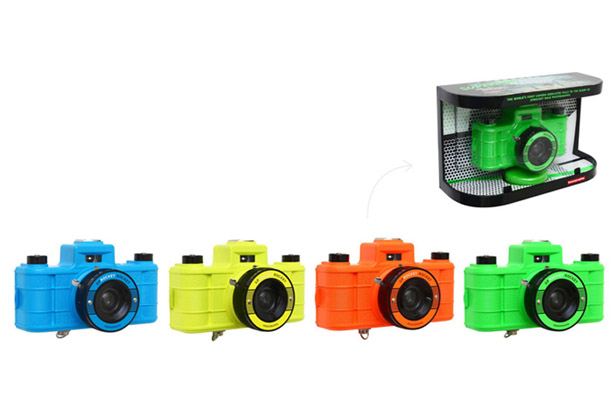TechRadar Verdict
Pros
- +
Easy to insert film
- +
Takes 35mm
- +
A good starting point for analogue photography
- +
Creative effects
Cons
- -
Expensive
- -
Easy to accidentally hit the shutter release
Why you can trust TechRadar
The Lomography Society has a huge cult following online, notching up over 350,000 Facebook fans all keen to worship at the altar of analogue.
To many people bored with the perfect image quality and predictable nature of today's digital cameras, Lomography (or Lomo) cameras add the guesswork of photography back in.
Although they're not known for their precise optics, the charm of Lomo is that you're never quite sure what you're going to get when your roll of film is processed.
The original Sprocket Rocket was launched into the market back in 2010, with the Superpop neon colour variations making their debut back in July. The premise of the camera, along with all Lomo cameras, is to keep it simple.

Getting its name from its ability to expose film all the way up past the sprocket holes, the camera shoots panoramas, giving an ultra wide field of view.
A rewind dial on the top of the camera means you can wind the film forwards and backwards for multiple exposures and other interesting effects.
In terms of controls, you won't find many on board, just a shutter release, the ability to switch between "normal" (1/100th second) and a Bulb mode. It doesn't come with an inbuilt flash, but there is a hotshoe on top of the camera for mounting such accessories.
Amy has been writing about cameras, photography and associated tech since 2009. Amy was once part of the photography testing team for Future Publishing working across TechRadar, Digital Camera, PhotoPlus, N Photo and Photography Week. For her photography, she has won awards and has been exhibited. She often partakes in unusual projects - including one intense year where she used a different camera every single day. Amy is currently the Features Editor at Amateur Photographer magazine, and in her increasingly little spare time works across a number of high-profile publications including Wired, Stuff, Digital Camera World, Expert Reviews, and just a little off-tangent, PetsRadar.

